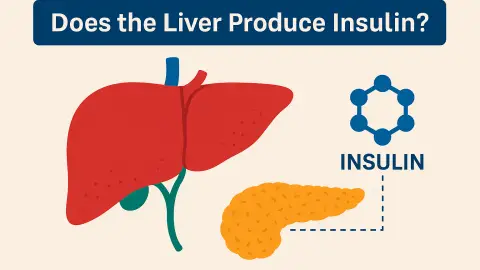Cyproheptidine, a well-known antihistamine used for allergies and appetite stimulation, has recently drawn attention for another reason — its potential link to insulin production and glucose metabolism. While the medication is primarily prescribed to treat allergic reactions, migraines, and to promote weight gain, some studies suggest it might influence the body’s insulin response in subtle but significant ways.
Understanding how Cyproheptidine affects insulin production requires exploring its pharmacology, hormonal interactions, and clinical research findings. This article delves into what science currently knows about this medication’s relationship with insulin, blood sugar, and metabolic health.
What Is Cyproheptidine?

Cyproheptidine hydrochloride is an antihistamine drug that blocks the action of histamine H1 receptors. It also exhibits antiserotonergic properties, meaning it can reduce the effects of serotonin in the brain and other tissues. It has been used for decades to treat allergy symptoms such as sneezing, itching, watery eyes, and runny nose.
Beyond its role in allergy management, Cyproheptidine is often prescribed as an appetite stimulant, particularly in cases of undernutrition or unintended weight loss. This is due to its ability to increase appetite through its influence on serotonin and possibly leptin — hormones that play crucial roles in hunger regulation.
Because of these hormonal effects, researchers have started examining whether Cyproheptidine could also influence metabolic pathways, including glucose utilization and insulin secretion. That’s where the question arises: can Cyproheptidine increase insulin production?
How Cyproheptidine Works in the Body
To understand whether Cyproheptidine can affect insulin, it’s important to know how the drug works. Cyproheptidine affects several neurotransmitters and hormones, which may indirectly influence metabolic processes.
1. Histamine and serotonin pathways
Cyproheptidine blocks both histamine and serotonin receptors. Histamine is involved not only in allergic responses but also in metabolic regulation. Serotonin, on the other hand, affects mood, digestion, and pancreatic function. By reducing serotonin activity, Cyproheptidine might alter the body’s glucose-insulin balance, though the mechanism is not yet fully understood.
2. Appetite stimulation and metabolic rate
Cyproheptidine increases appetite and food intake. When caloric intake rises, the pancreas must produce more insulin to manage the increase in blood glucose levels. Therefore, any observed rise in insulin might not be a direct effect of the drug itself but rather a secondary response to increased food consumption.
3. Hormonal interactions
Cyproheptidine also influences cortisol and growth hormone release. Both hormones have roles in regulating blood sugar and insulin sensitivity. A reduction in cortisol, for example, might help lower blood glucose levels, indirectly affecting insulin needs.
The Link Between Cyproheptidine and Insulin Production
Although Cyproheptidine is not an anti-diabetic drug, there are scientific discussions about its influence on insulin dynamics. Several mechanisms could explain why Cyproheptidine might increase or alter insulin secretion.
Serotonin inhibition and insulin secretion
Serotonin is known to play a role in pancreatic beta-cell function. Some studies suggest that serotonin can either promote or inhibit insulin release, depending on which receptors are activated. Since Cyproheptidine blocks serotonin receptors, it could potentially affect how beta cells respond to glucose.
However, results from research are mixed. While animal studies have shown that serotonin blockade can influence insulin release, human studies remain limited. Therefore, any potential increase in insulin production caused by Cyproheptidine is likely indirect and context-dependent.
Appetite and nutrient availability
By increasing appetite, Cyproheptidine encourages higher food intake. More carbohydrates entering the body stimulate the pancreas to produce more insulin. In this sense, Cyproheptidine may appear to increase insulin production — but it’s primarily a compensatory metabolic response to greater caloric consumption rather than a direct pharmacological effect.
Effects on body weight and insulin sensitivity
Weight gain caused by Cyproheptidine can influence insulin sensitivity. Individuals gaining fat mass might experience reduced insulin sensitivity, requiring the pancreas to release more insulin. On the other hand, some underweight individuals may experience improved insulin sensitivity after healthy weight gain. This makes Cyproheptidine’s metabolic impact complex and individualized.
What Research Says About Cyproheptidine and Insulin
While the topic is relatively new in the field of pharmacology, a few studies have explored Cyproheptidine’s potential metabolic effects.
1. Animal studies
Some animal studies have suggested that Cyproheptidine may alter glucose tolerance and insulin secretion. In rats, the drug showed varying effects depending on dosage and nutritional status. In certain cases, it appeared to improve glucose handling, possibly by modifying serotonin activity in the pancreas.
However, animal data cannot be directly extrapolated to humans due to differences in metabolic pathways and serotonin receptor distribution.
2. Human studies and clinical observations
In human subjects, there is limited direct evidence showing that Cyproheptidine increases insulin production. Most clinical data come from patients using the drug for appetite stimulation or migraine prevention. While many of these individuals experienced weight gain, insulin levels were not routinely monitored.
Some endocrinologists have hypothesized that any rise in insulin could be a byproduct of increased appetite, rather than a direct action of the medication.
3. Research gaps
The current lack of large-scale clinical trials means that definitive conclusions cannot yet be drawn. Further studies are needed to evaluate Cyproheptidine’s impact on insulin secretion, glucose metabolism, and potential benefits or risks for diabetic or pre-diabetic individuals.
Cyproheptidine and Blood Sugar Levels
It’s important to separate the concepts of insulin production and blood sugar regulation. Even if Cyproheptidine affects insulin indirectly, its influence on blood sugar could vary based on the individual’s health condition and diet.
Possible effects on blood sugar
- Increased food intake could lead to transient rises in blood glucose.
- The body compensates by producing more insulin.
- Over time, if calorie intake continues to exceed energy expenditure, insulin resistance could develop.
In underweight patients, however, this increase in appetite and nutrient intake might restore energy balance, supporting healthier glucose metabolism.
Influence on diabetic patients
For individuals with diabetes, Cyproheptidine should be used cautiously. Because it can alter appetite and possibly affect glucose levels, medical supervision is essential. Adjustments in insulin dosage or oral hypoglycemic medications may be required.
The Role of Serotonin in Insulin Regulation
Understanding serotonin’s relationship with insulin helps explain Cyproheptidine’s potential metabolic influence. Serotonin is not only a neurotransmitter but also a hormone produced in peripheral tissues, including the pancreas.
Serotonin and beta-cell activity
Serotonin modulates insulin secretion by binding to specific receptors on pancreatic beta cells. Depending on which receptor is activated, serotonin can either enhance or suppress insulin release. Cyproheptidine’s blockade of serotonin receptors could theoretically tilt this balance.
Serotonin, appetite, and weight
In the brain, serotonin suppresses appetite. By blocking serotonin, Cyproheptidine increases hunger, leading to higher calorie consumption. This effect indirectly involves insulin because the pancreas must process more glucose from the additional food intake.
A double-edged effect
This serotonin-related mechanism makes Cyproheptidine both useful and potentially risky. It’s beneficial for individuals needing weight gain but may cause unwanted metabolic changes in those prone to insulin resistance or type 2 diabetes.
Can Cyproheptidine Help With Insulin Deficiency?
For people with insulin deficiency or low insulin secretion, Cyproheptidine is not a recommended treatment. There is no evidence that it can safely or effectively increase insulin levels in a therapeutic way. It is not an approved medication for diabetes or metabolic disorders.
However, in certain metabolic conditions linked to serotonin imbalance, researchers have speculated that Cyproheptidine might modulate pancreatic function indirectly. This remains hypothetical and should not be interpreted as a clinical recommendation.
Possible Benefits of Cyproheptidine on Metabolism
While Cyproheptidine is not a diabetes drug, some of its metabolic effects could be beneficial in specific contexts.
1. Improved appetite in underweight individuals
For patients suffering from poor appetite, chronic illness, or malnutrition, Cyproheptidine can help restore caloric intake, supporting better nutrient absorption and metabolic stability. A balanced diet may indirectly help regulate glucose and insulin levels.
2. Hormonal balance in certain disorders
Because Cyproheptidine influences serotonin and cortisol, it may help stabilize hormonal pathways that affect metabolism. Some studies in patients with Cushing’s disease or other endocrine disorders have explored Cyproheptidine’s ability to reduce cortisol, which could indirectly improve insulin sensitivity.
3. Migraine and metabolic link
Interestingly, migraine sufferers sometimes experience altered glucose metabolism. Cyproheptidine’s use as a migraine preventive might also help reduce secondary metabolic stress caused by fluctuating serotonin and insulin activity.
Potential Side Effects Related to Insulin and Metabolism
Cyproheptidine’s metabolic impact can vary greatly among users. Some side effects may mimic insulin-related symptoms or influence blood sugar control.
Common metabolic side effects
- Increased appetite and weight gain
- Mild elevation in blood glucose
- Fatigue or drowsiness that reduces physical activity
- Possible changes in lipid profile
These effects are usually mild but should be monitored, especially in individuals with pre-existing metabolic disorders.
Serious but rare reactions
In rare cases, Cyproheptidine may cause significant metabolic imbalance if used long-term or at high doses. Monitoring blood sugar levels is recommended for patients with diabetes or obesity who are prescribed the drug for other purposes.
Who Should Avoid Using Cyproheptidine for Metabolic Reasons
Cyproheptidine should not be used as a supplement or experimental therapy for increasing insulin production. Individuals with certain conditions should be particularly cautious:
- Diabetics or pre-diabetics without physician supervision
- People with obesity or insulin resistance
- Individuals with metabolic syndrome or hyperglycemia
- Those already taking medications that affect blood sugar
Because the drug’s metabolic effects can vary, medical evaluation is crucial before using it in any off-label context.
Safe Use and Monitoring Guidelines
If prescribed Cyproheptidine for an approved indication such as allergies or appetite stimulation, users can follow certain precautions to maintain healthy glucose balance.
1. Regular blood sugar checks
Especially for diabetic or pre-diabetic patients, monitoring blood glucose during treatment can help detect any changes early. If significant fluctuations occur, medical advice should be sought immediately.
2. Balanced diet and physical activity
Since Cyproheptidine increases appetite, pairing it with a healthy eating plan helps prevent excessive weight gain. Regular exercise improves insulin sensitivity, reducing any risk of insulin resistance.
3. Doctor supervision
All use of Cyproheptidine should be medically supervised. Doctors can adjust dosages or discontinue treatment if unwanted metabolic effects appear.
Alternatives for Supporting Insulin Health
If the goal is to improve insulin production or sensitivity, safer and more effective options are available. These include:
- Dietary changes – A diet rich in whole grains, fiber, and low-glycemic foods supports natural insulin function.
- Regular exercise – Physical activity increases muscle glucose uptake, improving insulin efficiency.
- Nutritional supplements – Some natural compounds such as chromium, magnesium, and berberine may enhance insulin sensitivity.
- Medical therapy – For diagnosed insulin disorders, professional medications like metformin or insulin analogs are prescribed under supervision.
Cyproheptidine should not replace these proven approaches.
The Bottom Line
The question “Can Cyproheptidine increase insulin production?” does not have a simple yes or no answer. While the drug influences hormonal and metabolic pathways — especially through serotonin and appetite regulation — there is no solid evidence that it directly stimulates insulin secretion in a clinically meaningful way.
Any increase in insulin observed during Cyproheptidine use is likely a secondary response to higher food intake or altered metabolism. Therefore, while the medication can affect insulin dynamics indirectly, it is not a recommended or reliable treatment for insulin deficiency or diabetes.
Cyproheptidine remains a valuable medication for allergy management and appetite stimulation when prescribed properly. However, its use should always be guided by a healthcare professional, especially in individuals concerned with insulin levels or blood sugar control.
Disclaimer: This article is for informational purposes only and is not a substitute for professional medical advice. Always consult your doctor before starting or changing any medication.



